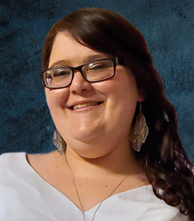The United Nations (UN) sanctioned World Refugee Day to recognize and grow empathy for those fleeing from their countries to escape conflict or persecution. Read on to learn about World Refugee Day, the different types of displaced people, and the actions you can take to offer solidarity and support.
Why is World Refugee Day important?
The UN created the 1951 Refugee Convention and 1967 Protocol to protect refugees and provide them with humanitarian rights. The UN celebrated the first World Refugee Day on June 20, 2001, to commemorate the 50th anniversary of the convention.
According to the UN, “Every minute, 20 people leave everything behind to escape war, persecution, or terror.”
The UN Refugee Agency’s “figures at a glance” for 2022 show:
- 4 million people worldwide were forcibly displaced
- 52% of all displaced people originated from three countries: the Syrian Arab Republic, Ukraine, and Afghanistan
- Children account for 30% of the world population, but 40% of all forcibly displaced people
- 1 in every 74 people on Earth has been forced to flee their homes
Refugees and other displaced people are among the most vulnerable people in the world, as they often must leave everything behind. Beyond material possessions, displaced people lose their local culture and sense of community when they’re forced to leave their homes.
Are all displaced people refugees?
Not all displaced people are considered refugees. Here are a few ways displaced people can be categorized:
Refugees
The United States Immigration and Nationality Act (INA) defines a refugee as “an individual who has experienced past persecution or has a well-founded fear of persecution on account of their race, religion, nationality, membership in a particular social group, or political opinion.” According to the UN, “many refugees are in exile to escape the effects of natural or human-made disasters.”
Asylum Seekers
The primary difference between a refugee and an asylum seeker comes down to the person’s legal status. An asylum seeker leaves their country due to human rights violations and seeks protection in another country but has not yet been granted legal refugee status in the new country.
Internally Displaced Persons
IDPs are people who’ve been uprooted from their homes due to persecution or disaster but have not crossed an international border to find a new place to live. Typically, this means IDPs were forced to move from one region of the country to another.
Stateless Persons
Stateless people have no recognized nationality, meaning they don’t belong to any country. Statelessness is typically caused by discrimination and often leads to a lack of citizenship certification and identification. Without identification, stateless persons can be excluded from accessing important government services such as employment, education, or healthcare.
Returnees
When former refugees come back to their country after time in exile, they’re known as returnees. Additional support during their reintegration helps them rebuild their lives at home.
How can you take action to support displaced people?
The UN Refugee Agency recommends four ways to take action to help displaced people:
- Donate: Financial contributions go toward relief supplies such as food, water, and shelter for displaced people.
- Advocate: Engage with elected officials and local leaders to protect refugee rights in your community.
- Welcome: Volunteering to help displaced people find jobs, resources, and shelter provides extra support to people arriving in a new country.
- Connect: Learn more about refugees and emergency situations from reliable sources and share that information with your networks to spread awareness and empathy.
If you work for an organization that supports displaced people, CyraCom can help.
We offer competitive rates on our phone interpretation, video interpretation, and translation services in 300+ languages, which can help your team communicate with and support refugees. Contact our team for a free language services consultation at getstarted@cyracom.com.










